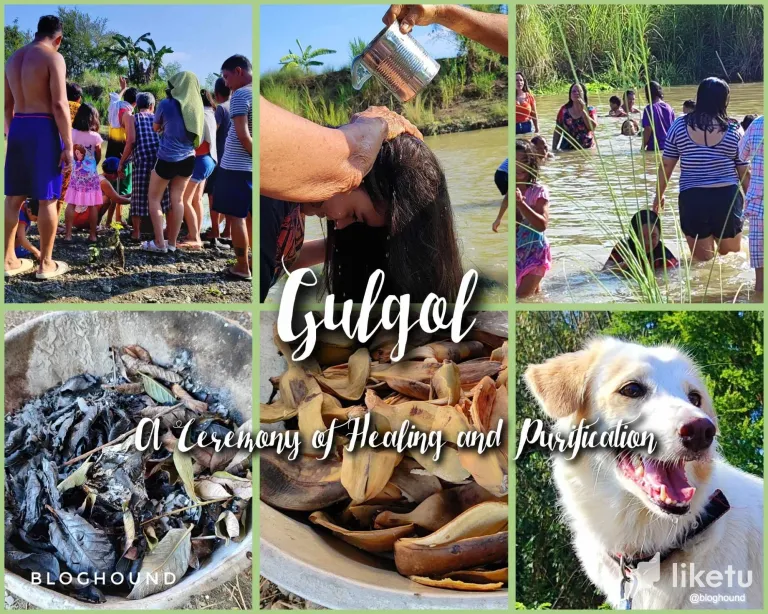
Attending Gulgol Ritual
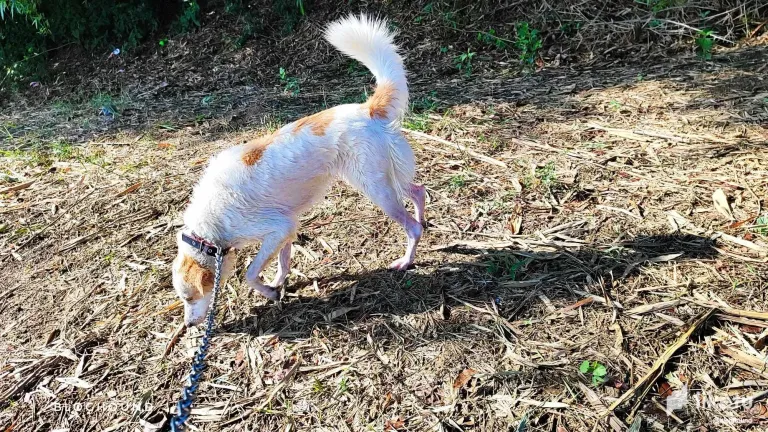
My dog Sofia came with us
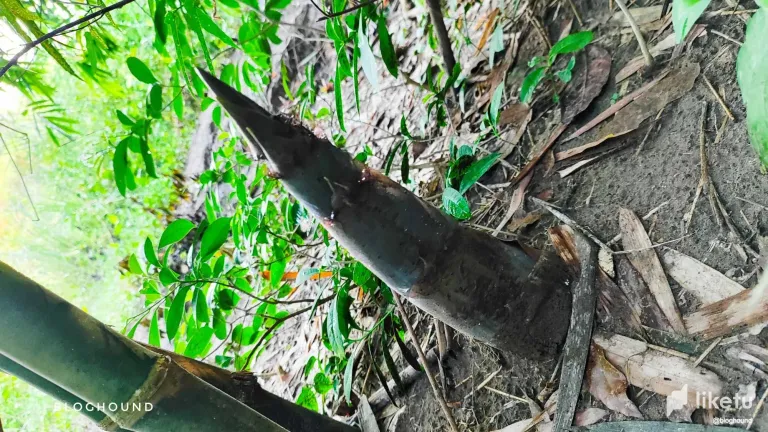
Bamboo shoot on our way

On our way to the river
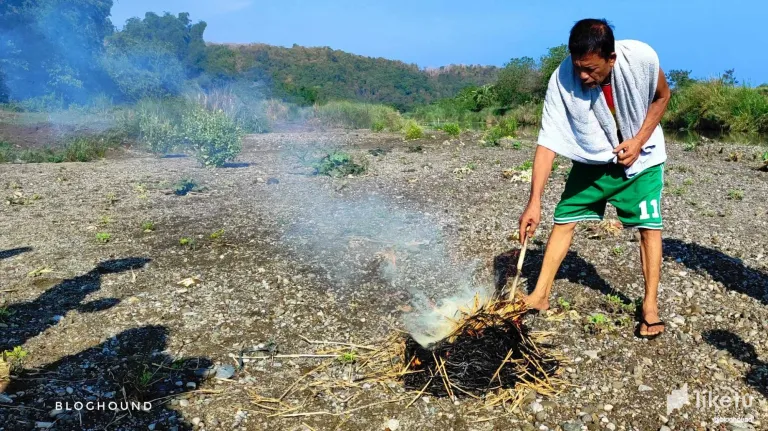
My cousin's husband burning the rice stalks

In line for the ritual

My uncle letting the chicken go
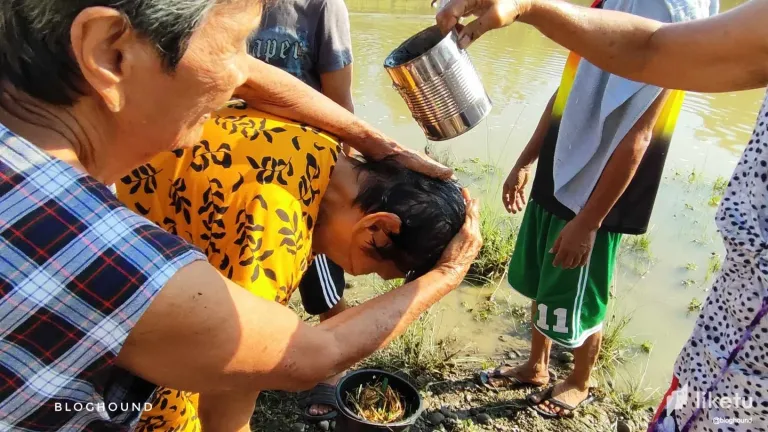
My uncle's wife

Rinsing after the ritual
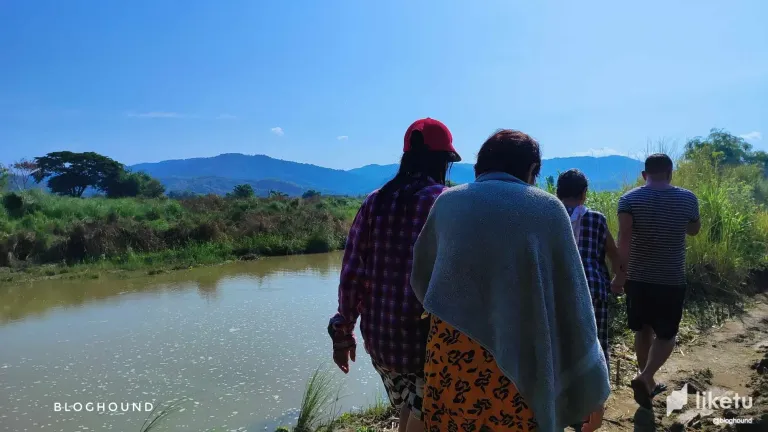
On our way back home
A pleasant day, y'all amazing people!
Last Tuesday was a day that will forever hold a place in my heart. It was the day we bid farewell to my dear uncle, a man whose presence had always brought warmth and laughter to our family gatherings. As we gathered to pay our final respects at his funeral, the weight of loss hung heavy in the air, but amidst the sorrow, there was also a sense of unity and resilience that bound us together.
The day after the funeral, all of us relatives and immediate family members went for a morning walk to the river close to my uncle's house to perform a sacred Ilokano ritual known as "Gulgol." This cleansing ceremony, deeply rooted in our cultural heritage, is a living tradition among the Ilocanos, like us in La Union province. It is a ritual that holds profound significance for honoring the departed and cleansing the spirits of those we have lost.
The morning had this special peacefulness as we made our way to the river, with the gentle rustling of bamboo trees keeping us company. Sofia, my faithful dog, walked by our side, adding her own hyper yet quiet presence to our journey. The path we took was a familiar one, passing through countryside homes and the vibrant green landscape. As we walked, I found and spot a bamboo shoot, a simple reminder of nature's cycle of growth and renewal.
Upon reaching the river, a sense of reverence and anticipation filled the air. My aunts and uncles, the pillars of our family, began the preparations for the ritual. A bundle of rice stalks was set ablaze, the crackling flames dancing in the morning light. As the rice stalks turned to ash, a mixture of sugarcane vinegar, betel nuts, and rolled tobacco was prepared, ready to be used in the cleansing ceremony.The ritual began with the family members (my uncle's wife, children, and grandchildren) to his siblings (my mom is one),kids and granchildren and all family relatives who attended the ritual ceremony standing in line, ready to honor his memory. The ashes from the burnt rice stalks were mixed with water, creating a sacred elixir that symbolized purification and renewal. I remember they added some drops of fresh blood of a chicken to the ashes too. Each family member, one by one, had their hair rinsed with the ash-infused water, a symbolic gesture of cleansing the spirit and bidding farewell to grief and misfortune. The solemnity of the moment was palpable—a shared understanding of the importance of honoring our loved one in this traditional way.
As we wrapped up the ritual, we all took a dip in the refreshing river waters, a last step in cleansing and starting anew. The rain had made the river a bit muddy, but the ritual's spiritual cleansing went beyond what our eyes could see, reaching deep into our hearts and souls in a way that words struggle to describe fully. Back at home, we continued the cleansing process, rinsing off the remnants of grief and sorrow before gathering for a simple meal of boiled saba bananas and an early lunch. The sense of unity and connection that permeated the ritual lingered in the air, a reminder of the enduring strength of our cultural traditions and the power of coming together in times of loss.
Looking back on that emotional day, I can't help but see the strength and unity that runs deep in my family, held together by love, our customs, and a profound respect for our heritage. The Gulgol ritual, though ancient, continues to touch our souls and minds in a timeless way, reminding us of the lasting impact of honoring our roots and embracing our shared Ilocano identity. In times of sorrow and reflection, it's our traditions that anchor us, providing comfort, connection, and a sense of continuity in the ever-changing journey of life. As we hold my uncle's memory close, we also carry on the traditions of our forefathers, keeping their legacy alive and preserving the flame of tradition that has guided us through the ages.
Thank you for reading.
⊱ღ One love ⊱ღ
@bloghound
Published:
May 23, 2024, 4:00 p.m. PST
In between the farm and the beach
Philippines
(Disclaimer:)
All content and materials on this blog, including but not limited to text, images, and graphics, are the intellectual property of @bloghound unless stated otherwise. Unauthorized use, reproduction, or distribution of any content from this blog without express written permission from the author may result in legal action. Plagiarism or copying of any kind is not only unethical but also illegal. Thank you for respecting the originality and integrity of the content on this blog.
-PLEASE DO NOT COPY-
For the best experience view this post on Liketu